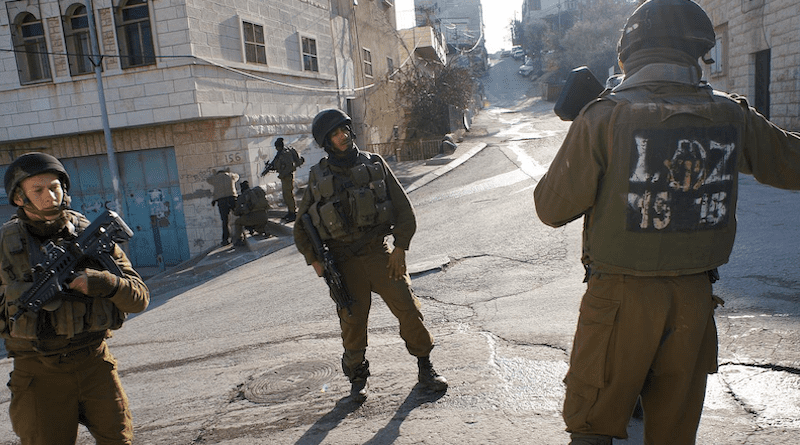Hidden Victims: Rising Pressure And Repression Against Arab Citizens Of Israel – OpEd
By Brian Hudson
The October 7, 2023, attack on Israel and the ensuing crisis have not only made Israeli foreign policy more aggressive than ever but also radicalized its domestic politics. On the one hand, this crisis has led to fundamental changes in Israel’s defense and security strategies; on the other, it has intensified complex internal and social crises within the country.
Among those most affected are the Arab citizens of Israel, who make up about 20% of the population and have long faced structural inequalities and legal disenfranchisement. With the expansion of state surveillance, civil restrictions, and social stigmatization, their status in Israeli society has become increasingly precarious. These conditions, shaped by repressive government policies, have sparked a new identity and social crisis among Arab Israelis. The current policies, which severely limit their democratic rights, not only betray the principles of equality and democracy but also sow deeper seeds of division in Israel’s future. Under these circumstances, a fundamental question arises: Can a society that marginalizes and violates the rights of a segment of its citizens still claim to be a true democracy?
To understand the current situation of Arab citizens in Israel, one must look to the past. Since Israel’s establishment in 1948, these citizens have faced laws that systematically marginalize them. Laws such as the “Law of Return,” which grants Jews worldwide instant citizenship while denying the same to Arabs, or the “Absentees’ Property Law,” which confiscated property from displaced Palestinians, are just two examples of institutionalized inequality. Arab citizens of Israel have also faced consistent barriers in access to land, housing, education, and employment. Reports by human rights organizations like Adalah show that budget allocations for Arab municipalities are significantly lower than for Jewish areas, further widening social gaps. This historical context has laid the groundwork for a sense of alienation that, under the intensifying repression and discrimination of recent months, has only grown stronger.
Since October 2023, the tense political and social climate in Israel has sharply increased the pressure on Arab citizens. Reports from human rights organizations such as Amnesty International and B’Tselem point to a surge in arbitrary arrests of Palestinian-origin activists. These arrests are often based on vague accusations like “incitement to violence” and typically stem from nonviolent actions such as social media posts, private statements, or participation in peaceful protests. Arrests of Arab poets and writers for works addressing identity and rights issues are emblematic of the depth of this crisis. Such actions not only violate individual freedoms but also systematically instill fear and insecurity among Arab Israelis. For instance, statistics indicate over 150 indictments against Arabs for incitement, while no similar charges have been filed against Jews for racist speech. Specific examples—like the arrest of Palestinian activist Dalal Abu Amneh and an Arab comedian for innocuous social media content—highlight the disproportionate enforcement. Moreover, discriminatory policies such as banning protests in Arab-majority areas—while Jewish demonstrations proceed freely—exacerbate dissatisfaction and division. These measures send a clear message: expressing Palestinian identity in Israel comes at a steep cost. Rather than promoting coexistence and equality, Israel is suppressing democratic rights and stoking division, thereby distancing itself from democratic values and risking serious internal social threats.
Since October 2023, Israeli public discourse has seen a surge in anti-Arab sentiment. Statements from politicians openly questioning the “loyalty” of Arab citizens have fueled this wave. Proposals like revoking the citizenship of those accused of vaguely defined “anti-state” actions—though not yet law—have reinforced an atmosphere of fear and mistrust. The media has played a role in this as well; its one-sided reporting and focus on security threats have made Arab citizens scapegoats for public anger. These labels have endangered the fragile coexistence between Jewish and Arab communities in cities like Haifa and Acre and further eroded Arab citizens’ sense of belonging.
The right to protest—one of the cornerstones of democracy—has become a rarity for Arab Israelis. Bans on peaceful gatherings in cities like Nazareth and Umm al-Fahm, which have large Arab populations, exemplify these restrictions. In many cases, police have used force to disperse demonstrators calling for an end to regional violence or the repeal of discriminatory policies. While these crackdowns are justified as efforts to maintain public order, in practice, they silence Arab voices and deprive them of meaningful participation in public discourse. The outcome is not social calm but a buildup of anger and disillusionment among a generation that sees little hope for change.
Some may argue that in times of crisis, temporary civil rights restrictions are necessary to maintain national security. While this position may appear logical at first, it suffers from two major flaws. First, the exclusive focus on Arabs as a threat, without clear and consistent evidence, amounts to discrimination. Rather than reducing tensions, this approach fuels a sense of injustice among Arab citizens and can lead to greater instability. Second, true democracy is tested in difficult times. A country that strips part of its population of rights in the name of security cannot credibly claim to uphold democratic values. History shows that repressing minorities rarely leads to lasting peace and often triggers cycles of resentment and mistrust.
If current policies continue, they pose a troubling future for Israel. Arab citizens, as an integral part of society, play a key role in the country’s economy, culture, and even politics. Pushing them to the margins not only damages social cohesion but also undermines Israel’s claim to democracy. Young Arabs, growing up amid repression and discrimination, may one day abandon the hope of contributing to a society that systematically excludes them.
In the midst of the recent storm of crises, Arab citizens of Israel have been pushed to the margins of a silent war—a war not fought with weapons, but through repressive policies, relentless surveillance, and social stigmatization. This hidden battle targets civil rights, human dignity, and the sense of belonging, deepening the cracks in Israeli society.

